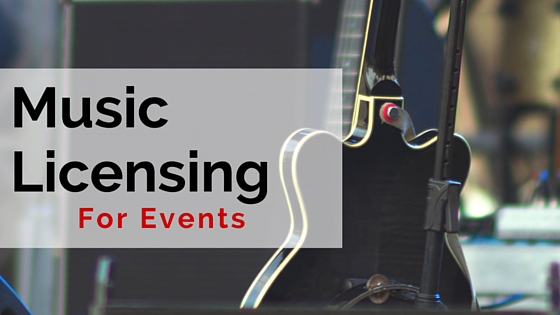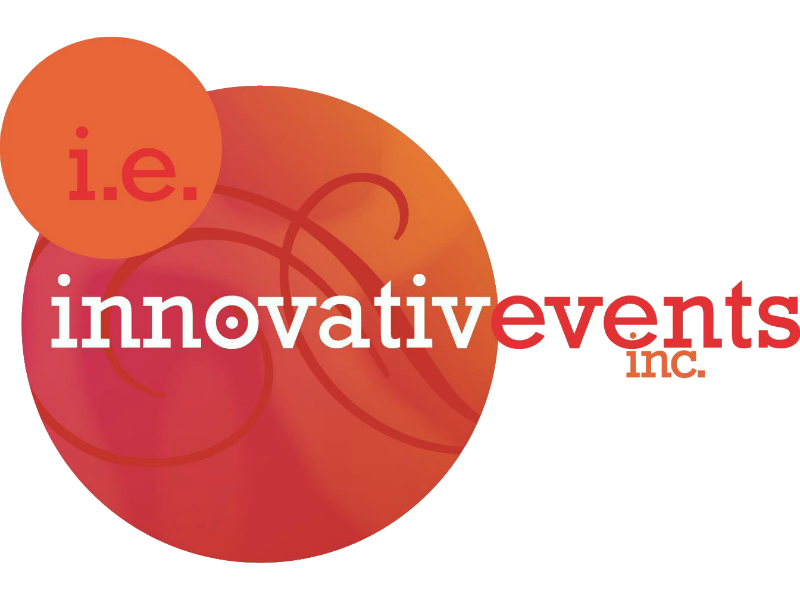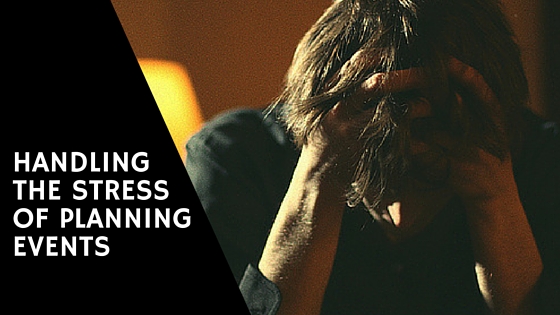
So, you have an event and you plan on playing some music in the background…No biggie right? Not quite. Before you plug in your iPhone to play your favorite tunes, you need to know a little bit about music licensing and how it affects your events.
Licensing for music is as big of a deal as using someone else’s artwork on your PowerPoints and not paying for it. If you don’t get the proper licenses, the penalty can be huge. As event planners, this is all very confusing and time consuming; trying to figure out who, what, and when of the music licenses – plus how they work!
Although getting licensing isn’t the most convenient task on your event planning checklist, it beats the alternative. The alternative to purchasing a license is to contact each artist who’s music you intend to play and get their written permission. You may also have to ask your band to play original material only. We all know that when we hire a band to play covers, that having them only play their original tunes might not be the best request.
Can you image trying to track down the correct people and having them respond to this request? It would take one person dedicated to this specific task many hours and many weeks to complete. This would require you knowing your playlist well in advance. Doesn’t sound like a task I want to take on. I am sure the hours I would spend research, making phone calls and sending emails would be more than the cost of the license itself.
When researching licenses you might find that the responsibility falls to the venue to purchase and hold the licenses for music. However, many venues are now passing on that responsibility to the entity holding the event. Check in with both the facility and licensing bureaus to make sure you are covered in order to avoid the high penalties if you aren’t.
We searched the internet to locate the best descriptors of ‘what’ license you need and ‘when’ you need a license. Here’s what we’ve found:
1. There are three different licensing entities (ASCAP, BMI, & SESAC). Each one is a little different.
2. For just ASCAP alone there are over 100 different license types and each one has pretty strict usage rules.
3. For each event type, there are different rules which can get fairly specific
4. Pricing for the license depends on the type of the event and how many attendees you will have at the event.
5. Charity events are NOT excluded from needing a license for events (usually they are covered under a one-time event license)
6. Copyright law says events for only friends and family do not need a license – Hey wedding planners, you’re in the clear! Based on a chat conversation with Frank at ASCAP online. Connect Here → https://www.ascap.com/licensing/types/general-business
7. Licenses are based on the TYPE of event, not who is hosting the event.
8. There are 3 licensing entities that you need to consult with on your event.
CAUTION: Pay for only one license from one licensing bureau and any song used that doesn’t fall under their license is susceptible to a fine. I suggest playing it safe and getting a license from all 3 entities so that you don’t have to waste time figuring out which songs are covered by a specific entity. Whereas if you get all three, you’re covered no matter what.
Here are the links to all three licensing agencies:
https://www.ascap.com/licensing
https://www.bmi.com/licensing/#licensetools
https://www.sesac.com/About/History.aspx
Although music licensing can be quite confusing, I found the online chat to be most helpful. ‘Frank’ from ASCAP answered all my questions and was very courteous. I didn’t find an online chat at BMI or SESAC, but both have phone numbers for you to contact them.


